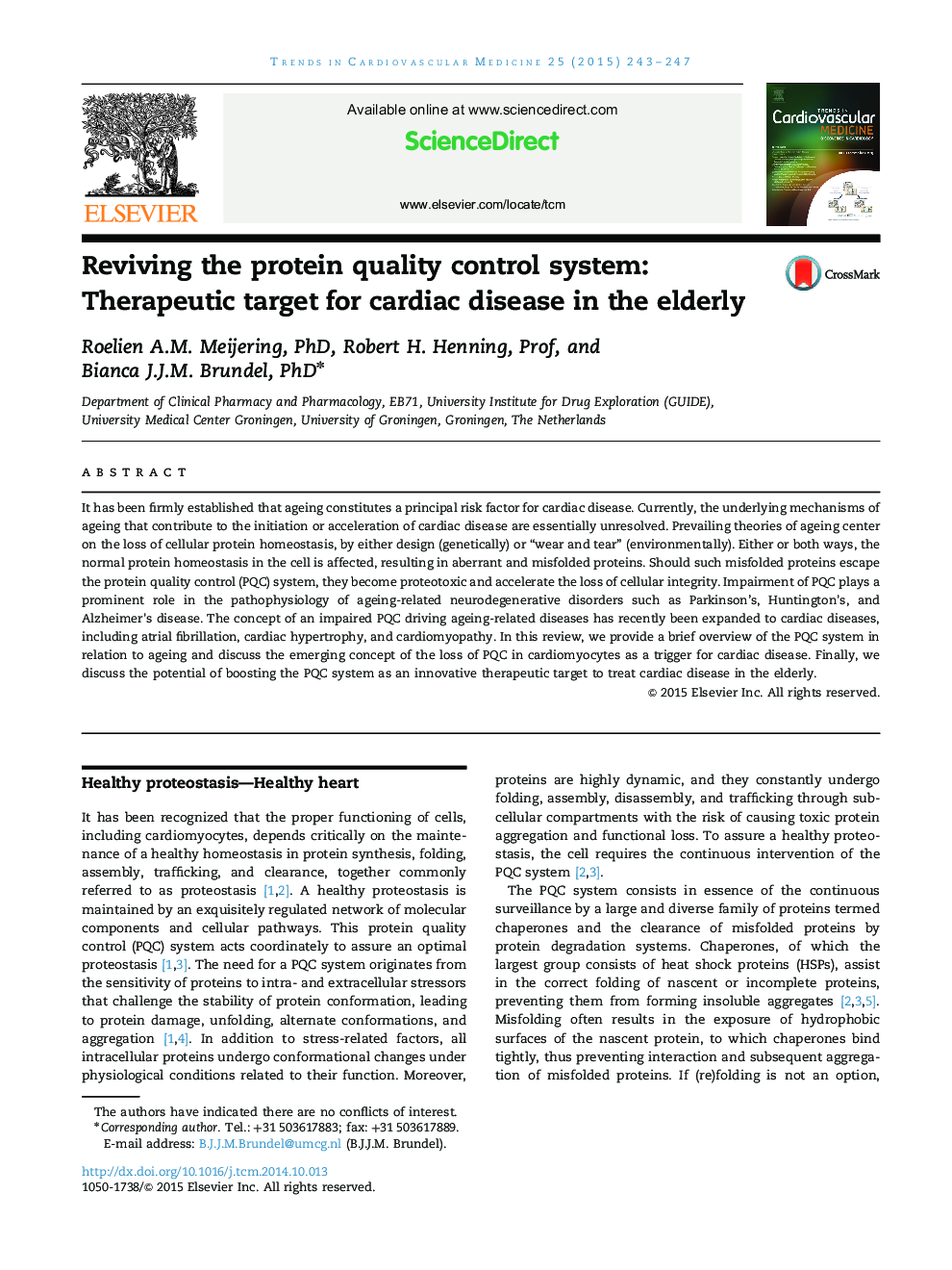| Article ID | Journal | Published Year | Pages | File Type |
|---|---|---|---|---|
| 3030864 | Trends in Cardiovascular Medicine | 2015 | 5 Pages |
It has been firmly established that ageing constitutes a principal risk factor for cardiac disease. Currently, the underlying mechanisms of ageing that contribute to the initiation or acceleration of cardiac disease are essentially unresolved. Prevailing theories of ageing center on the loss of cellular protein homeostasis, by either design (genetically) or “wear and tear” (environmentally). Either or both ways, the normal protein homeostasis in the cell is affected, resulting in aberrant and misfolded proteins. Should such misfolded proteins escape the protein quality control (PQC) system, they become proteotoxic and accelerate the loss of cellular integrity. Impairment of PQC plays a prominent role in the pathophysiology of ageing-related neurodegenerative disorders such as Parkinson’s, Huntington׳s, and Alzheimer׳s disease. The concept of an impaired PQC driving ageing-related diseases has recently been expanded to cardiac diseases, including atrial fibrillation, cardiac hypertrophy, and cardiomyopathy. In this review, we provide a brief overview of the PQC system in relation to ageing and discuss the emerging concept of the loss of PQC in cardiomyocytes as a trigger for cardiac disease. Finally, we discuss the potential of boosting the PQC system as an innovative therapeutic target to treat cardiac disease in the elderly.
